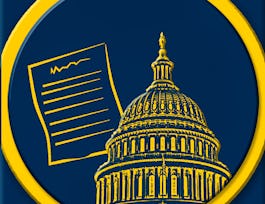Public health communicators have a duty to communicate health information with integrity, accuracy, and clarity. For messaging to be most effective, public health communicators must help their audiences draw meaningful connections with the information being shared, and connect with them in ways that foster trust and credibility.


Connect with Diverse Audiences during a Public Health Crisis
This course is part of Leadership for Public Health Crises Specialization
Taught in English
Some content may not be translated

Instructor: Brenda Hoffman, Ph.D.
Included with 
Course
(11 reviews)
Recommended experience
Details to know

Add to your LinkedIn profile
14 quizzes
Course
(11 reviews)
Recommended experience
See how employees at top companies are mastering in-demand skills

Build your subject-matter expertise
- Learn new concepts from industry experts
- Gain a foundational understanding of a subject or tool
- Develop job-relevant skills with hands-on projects
- Earn a shareable career certificate


Earn a career certificate
Add this credential to your LinkedIn profile, resume, or CV
Share it on social media and in your performance review

There are 4 modules in this course
People's culture, history, and lived experiences affect how they interpret and engage with health-risk information. Without acknowledging these influences, public health communicators may struggle to successfully engage their audiences with the information at hand. This module explores how public health communicators can segment their audiences into smaller groups, thereby allowing them to tailor messages to each group's unique needs.
What's included
4 videos5 readings4 quizzes1 peer review
To motivate people to act on health information, public health communicators must be able to make that information relevant to their audiences, and connect with them in ways that foster trust and credibility. One way to connect with audiences is through empathy. Taking the time to understand where they are coming from, and acknowledging their perspectives regardless of the accuracy of those perspectives, shows people that you care. This module explores how public health communicators can recognize and overcome underlying biases, assumptions, and stereotypes to create messaging that is rooted in empathy.
What's included
4 videos5 readings4 quizzes1 peer review1 discussion prompt
Whether public health messages are successful at motivating people to adopt a recommended action, is driven largely by the person or entity communicating that information, and the structural components of the message itself. This module explores how public health communicators can leverage persuasive communication strategies, to frame and deliver their messages in ways that appeal to their audience’s core values.
What's included
3 videos4 readings3 quizzes1 peer review1 discussion prompt
For some audiences, a media interview is the only channel through which they will encounter important health and safety information during a public health crisis. During an interview, public health communicators must convey high stakes information in a short amount of time, connect with the viewers, and convince them to adopt actionable steps to protect themselves. This module explores how public health communicators can approach media interviews with confidence, and shift their attention outward with a greater focus on their audience(s).
What's included
3 videos2 readings3 quizzes1 peer review1 discussion prompt
Instructor

Offered by
Recommended if you're interested in Leadership and Management

University of Michigan

University of Michigan

Emory University

University of Michigan
Why people choose Coursera for their career




New to Leadership and Management? Start here.

Open new doors with Coursera Plus
Unlimited access to 7,000+ world-class courses, hands-on projects, and job-ready certificate programs - all included in your subscription
Advance your career with an online degree
Earn a degree from world-class universities - 100% online
Join over 3,400 global companies that choose Coursera for Business
Upskill your employees to excel in the digital economy
Frequently asked questions
Access to lectures and assignments depends on your type of enrollment. If you take a course in audit mode, you will be able to see most course materials for free. To access graded assignments and to earn a Certificate, you will need to purchase the Certificate experience, during or after your audit. If you don't see the audit option:
The course may not offer an audit option. You can try a Free Trial instead, or apply for Financial Aid.
The course may offer 'Full Course, No Certificate' instead. This option lets you see all course materials, submit required assessments, and get a final grade. This also means that you will not be able to purchase a Certificate experience.
When you enroll in the course, you get access to all of the courses in the Specialization, and you earn a certificate when you complete the work. Your electronic Certificate will be added to your Accomplishments page - from there, you can print your Certificate or add it to your LinkedIn profile. If you only want to read and view the course content, you can audit the course for free.
If you subscribed, you get a 7-day free trial during which you can cancel at no penalty. After that, we don’t give refunds, but you can cancel your subscription at any time. See our full refund policy.

